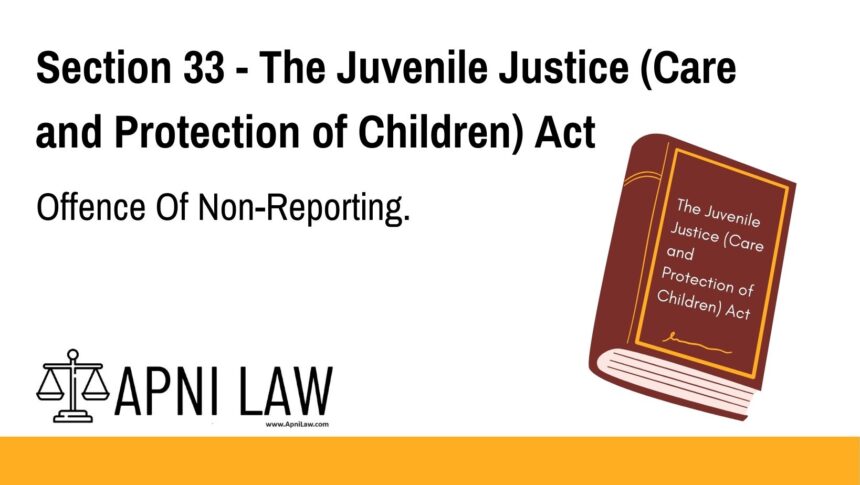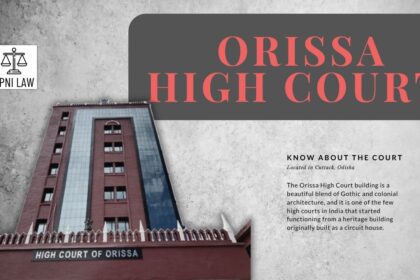Code
If information regarding a child as required under section 32 is not given within the period specified in the said section, then, such act shall be regarded as an offence.
Explanation
Section 33 of the Juvenile Justice Act, 2015 deals with the mandatory obligation to report children in need of care and protection. It specifies that failure to provide the required information about such a child, as outlined in Section 32, within the prescribed time, constitutes a punishable offence under the Act.
This provision ensures accountability and timeliness in bringing vulnerable children under legal protection. It deters individuals or institutions from ignoring their duty to report cases involving children who may be abandoned, orphaned, lost, or in distress.
Key Highlights
-
Applies to individuals, institutions, NGOs, hospitals, or any person who comes in contact with a child in need of care and protection.
-
If they fail to report as required under Section 32, it becomes a legal offence.
-
Reinforces the legal duty of immediate reporting to the Child Welfare Committee, police, or designated authorities.
Illustration
Example 1: A hospital receives an abandoned newborn. If the hospital staff do not inform the Child Welfare Committee or the police as mandated under Section 32, they are committing an offence under Section 33.
Example 2: A teacher notices signs of abuse on a student but fails to report it to the appropriate authorities. This negligence amounts to an offence under this section.
Frequently Asked Questions (FAQs)
Q1: What is required under Section 32?
A: Section 32 requires any person or organization that finds or becomes aware of a child in need of care and protection to report it to the Child Welfare Committee, police, or child helpline without delay.
Q2: Who can be held accountable under Section 33?
A: Any person or institution (including hospitals, schools, NGOs, etc.) who fails to report such information as required.
Q3: Is there a specific time frame for reporting?
A: Yes, the report must be made immediately, as per the timeframe stipulated under Section 32.
Q4: What are the consequences of non-reporting?
A: It is treated as an offence, and legal action can be initiated against the person or organization responsible.
Conclusion
Section 33 reinforces the legal and moral responsibility of individuals and institutions to act promptly when they encounter children in distress or in need of care and protection. It ensures swift intervention by the authorities and accountability for negligence.








